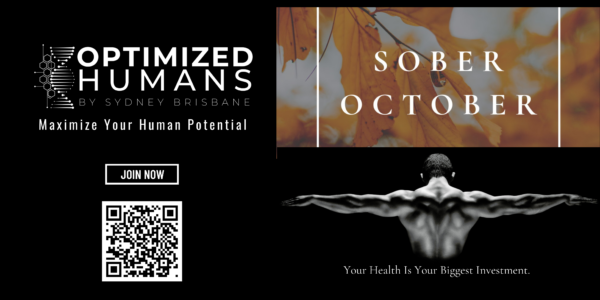 How Alcohol Impacts Your Mental and Physical Performance
How Alcohol Impacts Your Mental and Physical Performance
Alcohol isn’t just a social indulgence; it’s a substance that can significantly affect both your mental and physical performance. Whether you’re an athlete trying to stay at peak fitness or simply aiming to stay sharp at work, understanding how alcohol impairs your abilities is essential.
The Effects on Mental Performance
Alcohol has a direct impact on the brain, altering how it functions on multiple levels:
- Impaired Cognitive Functions: Alcohol reduces your ability to concentrate, process information, and make decisions. Even moderate drinking can slow your reaction times and impair short-term memory.
- Increased Stress and Anxiety: While alcohol might temporarily reduce feelings of stress, it can cause increased anxiety and stress in the long run due to its effects on neurotransmitter balance.
- Decreased Productivity: Drinking the night before work can lead to brain fog, lack of motivation, and decreased productivity, making it harder to stay focused and accomplish tasks efficiently.
The Effects on Physical Performance
Alcohol’s impact on your body is just as detrimental:
- Slower Recovery Time: Alcohol interferes with your body’s ability to recover from workouts. It dehydrates muscles, hampers protein synthesis, and reduces your energy levels, all of which can delay recovery after exercise.
- Decreased Strength and Endurance: Drinking reduces muscle coordination and decreases your physical performance by impairing your motor skills and weakening your stamina. This makes it harder to maintain peak fitness levels.
- Disrupted Sleep: Alcohol can significantly disrupt sleep patterns, leading to poor-quality rest. Since sleep is essential for physical recovery and overall health, this can have lasting negative effects on your performance.
By reducing or eliminating alcohol from your lifestyle, you can see marked improvements in your mental clarity, physical strength, and overall well-being.
Ready to take your health to the next level? With Optimized Humans, you can access personalized workout and nutrition plans, support for your wellness goals, and a community to keep you motivated. Sign up today and receive a special discount on your membership by mentioning this blog! Start your Sober October challenge with us, and take the first step towards a fitter, healthier, and more optimized you.

 Hey my Optimized Humans,
Hey my Optimized Humans,
As we gather once again in our digital sanctuary, I’m compelled to delve into a topic close to my heart: Alcohol Awareness Month. This isn’t just another awareness campaign—it’s a chance for us to confront the highs and lows of substance use, to navigate the complexities of our relationship with alcohol and drugs with honesty and compassion.
So, join me on this journey as we explore the depths of social bonding, the pitfalls of addiction, and the path to holistic well-being. Together, as we shed light on the shadows of substance abuse, let’s empower each other to thrive and embrace life to its fullest.
Welcome to a conversation that transcends stigma and judgment, where empathy and understanding reign supreme. Let’s dive in, my friends, and navigate the winding path of Alcohol Awareness Month together.
Alcohol Awareness Month: Understanding the Ups and Downs of Substance Use
As April unfolds, it brings with it a poignant reminder: Alcohol Awareness Month. In a society where alcohol consumption is often intertwined with social gatherings, celebrations, and even daily routines, it’s essential to pause and reflect on the multifaceted impact of alcohol and drug use on our lives. From the highs of camaraderie to the lows of addiction and health consequences, the journey through substance use is riddled with complexities that warrant our attention.
The Ups: Exploring the Social Facets of Alcohol and Drug Use
1. Social Bonding and Connection: For many, alcohol serves as a social lubricant, easing inhibitions and fostering camaraderie. Whether sharing a drink with friends after work or toasting to milestones at celebratory events, alcohol often acts as a facilitator of social interaction and connection.
2. Escapism and Stress Relief: In times of stress or emotional turmoil, alcohol and drugs may offer a temporary escape from reality. The euphoria induced by substances can provide a respite from life’s challenges, offering a brief reprieve from anxiety, depression, or other emotional burdens.
3. Cultural and Ritualistic Significance: In various cultures and traditions, alcohol holds deep-rooted significance, often symbolizing hospitality, celebration, or religious rituals. From wine in religious ceremonies to traditional toasts at weddings, alcohol plays a central role in many cultural practices, reinforcing social bonds and traditions.
The Downs: Confronting the Mental and Physical Health Challenges
1. Addiction and Dependency: Perhaps the most significant downside of alcohol and drug use is the potential for addiction and dependency. What may start as occasional social drinking or recreational drug use can spiral into a destructive cycle of dependence, impacting every aspect of one’s life, from relationships to employment and overall well-being.
2. Mental Health Implications: Alcohol and drug abuse can exacerbate existing mental health conditions or precipitate new ones. From depression and anxiety to psychosis and cognitive impairment, substance abuse can wreak havoc on mental health, leading to a vicious cycle of self-medication and worsening symptoms.
3. Physical Health Consequences: The toll of alcohol and drug use on physical health is undeniable. From liver disease and cardiovascular complications to impaired immune function and increased risk of cancer, the ramifications of substance abuse can be severe and life-threatening.
Navigating the Complexities: Cultivating Awareness and Empowerment
As we navigate the ups and downs of alcohol and drug use during this awareness month, it’s essential to approach the topic with compassion, understanding, and a commitment to holistic well-being. Rather than resorting to stigma or judgment, let’s foster open dialogue and awareness surrounding substance use, acknowledging its complexities and offering support to those in need.
Healthy Coping Strategies:
1. Seeking Support: If you or someone you know is struggling with alcohol or drug use, reaching out for support is the first step toward healing. Whether through therapy, support groups, or trusted loved ones, know that you are not alone, and help is available.
2. Exploring Alternative Coping Mechanisms: Discover healthy coping mechanisms that offer solace and relief without the need for substances. Engage in activities that bring you joy, such as exercise, meditation, creative expression, or spending time in nature.
3. Prioritizing Self-Care: Cultivate a lifestyle that prioritizes self-care and overall well-being. Nourish your body with nutritious food, prioritize sleep and relaxation, and engage in activities that promote mental and emotional balance.
As we honor Alcohol Awareness Month, let’s commit to fostering a culture of awareness, empathy, and support surrounding substance use. By understanding the ups and downs of alcohol and drug use and embracing healthy coping strategies, we empower ourselves and our communities to navigate this complex terrain with resilience and compassion. Together, let’s strive for a future where individuals can live their lives to the fullest, free from the grips of addiction and empowered to embrace wellness in all its forms.
 As we bid farewell to the first chapter of our Stress Awareness Month exploration, we find ourselves standing at the threshold of deeper understanding. We’ve laid the groundwork, acknowledging the pervasive influence of stress in our lives, and now, with a newfound awareness, it’s time to delve into the intricate details that shape our experiences.
As we bid farewell to the first chapter of our Stress Awareness Month exploration, we find ourselves standing at the threshold of deeper understanding. We’ve laid the groundwork, acknowledging the pervasive influence of stress in our lives, and now, with a newfound awareness, it’s time to delve into the intricate details that shape our experiences.
In our next installment, “The Anatomy of Stress: Identifying Triggers and Building Resilience,” we embark on a journey of self-discovery. We’ll navigate the labyrinth of stress triggers, those subtle yet powerful elements that weave into the fabric of our daily existence. By shining a light on these triggers, we empower ourselves to dismantle their influence and reclaim control over our well-being.
Identifying Triggers: Navigating the Modern Stress Landscape
- Digital Overload and Disconnect: Our constant connectivity can be a double-edged sword. While it fosters communication and access to information, it can also lead to digital overload. The incessant flow of messages, notifications, and information can act as a significant stress trigger. Let’s explore how to find balance in the digital age and create intentional spaces for disconnection.
- Work-Life Integration Pitfalls: The blurring lines between work and personal life present a unique set of challenges. Recognizing the specific stressors that arise from this integration is crucial for effective stress management. Together, we’ll explore strategies to establish boundaries and foster a more harmonious relationship between our professional and personal spheres.
- Navigating Social Pressures: Comparison culture and societal expectations can be potent stress catalysts. By dissecting the roots of these pressures, we can develop resilience against their impact. Join me as we uncover strategies to build self-confidence, challenge societal norms, and cultivate a mindset that is resilient in the face of external pressures.
Building Resilience: Crafting Your Armor Against Stress
- Mindfulness Practices for Daily Empowerment: Building resilience starts with mindfulness. We’ll delve into practical mindfulness practices that empower you to stay present, reduce anxiety, and navigate stress with grace.
- Setting Boundaries for Personal Liberation: Establishing clear boundaries is an act of self-love. Together, we’ll explore the art of saying no, prioritizing self-care, and fostering an environment that promotes balance and well-being.
- Fostering Supportive Connections: Your support network is a cornerstone of resilience. We’ll discuss the importance of nurturing meaningful connections, seeking and offering support, and creating a community that strengthens your resilience.
As we journey into the intricacies of stress, let’s keep our curiosity alive, our minds open, and our hearts resilient. Stay tuned for the next chapter, where we unravel “The Anatomy of Stress: Identifying Triggers and Building Resilience.” It’s time to dissect stress, understand its inner workings, and fortify ourselves against its subtle influence. Together, let’s embark on a transformative exploration of self-discovery and empowerment.
